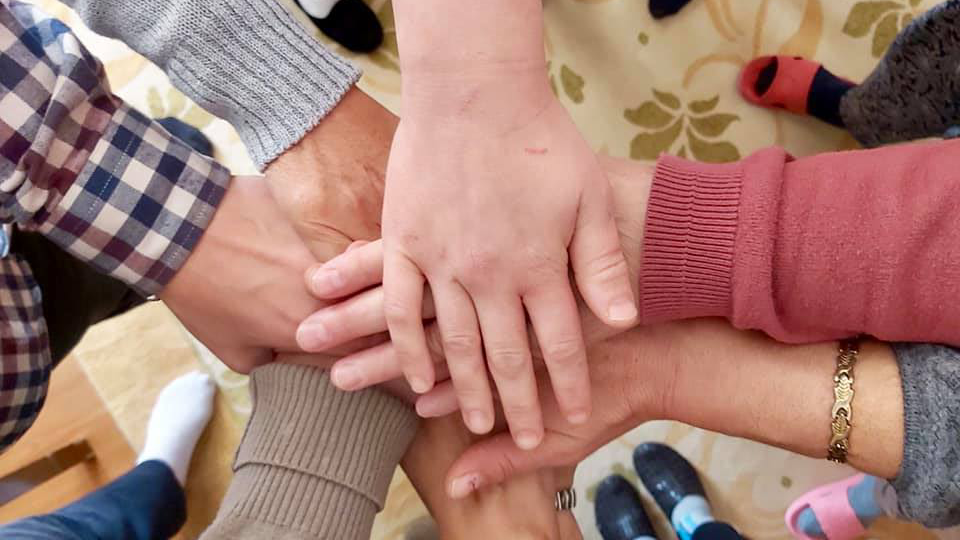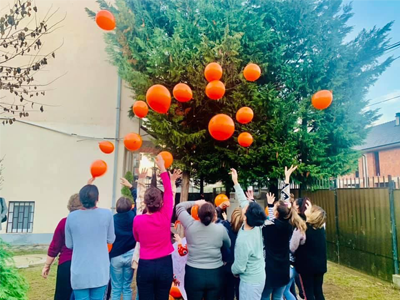As cases of the violence against women continue to rise, UN Women provides psychological support for survivors
Date:

From the start of the COVID-19 pandemic, Kosovo[1] has witnessed an increase in cases of domestic and gender-based violence. According to a recent UN assessment, police reports from across Kosovo show a 22 percent increase in domestic violence in the first months of the pandemic compared to the same period in 2019. ‘The Rapid Socio-economic Impact Assessment of COVID-19’ was carried out by UN Women, the United Nations Development Programme (UNDP) and the United Nations Population Fund (UNFPA). As domestic violence increased, so did the survivors' need for a safe space, a shelter, and a safe environment.
The COVID-19 pandemic is taking a toll on everyone’s psychological well-being, but those most affected are the vulnerable. UN Women, through the UN Multi Partner Trust Fund (MPTF), has engaged two clinical psychologists. They have visited the Safe House Shelter in Gjakova, one of the most crowded shelters in Kosovo, three times every week, providing individual and group therapy for women and children.
The aim of the psycho-social support is to help women and children actively integrate back into society after tackling the trauma they have experienced. Having been exposed to a traumatic situation such as domestic violence, women and children often withdraw into themselves to cope with the issue.
Flutura Berisha [2], a 51-year-old survivor admitted in to the shelter during the first week of the pandemic has been receiving psychological support at the shelter. “These sessions initially helped me to reveal all the pain I was feeling inside. I thought I was feeling physical pain but now, day-by-day, I realize that it had to do with the psychological consequences of the violence I had suffered, which had aggravated and stressed me more than I could bear,” she said. “Today I feel stronger and I am confident that I can make it on my own, because I’ve always blamed myself in the past and now I feel emotionally empowered from removing all those burdens that were holding me back.”

One of the two clinical psychologists, Visar Sadiku, said that the mental health of women and children in the shelter is fragile because of the pandemic. “Stress symptoms are not being manifested only in women but also children who have witnessed the situations, and are now experiencing behavioural issues, emotional tantrums, concentration problems and a lack of interest in academic achievements,” he said.
Lule Gashi, another domestic violence survivor, is 29 and was admitted to the shelter during the pandemic with her five children aged eight, six, four, two and eight months. “Individual and group psychological sessions have helped me to get to know myself better, and not blame myself for the violence I endured for years. Psychological sessions have helped me to respect myself first, my children, my friends in the Safe House, and the staff, ” Lule Gashi said.
As part of the sessions, children are engaged in different educational materials, recreational play and group therapy. They watch and engage with educational videos.
After four weeks improvement in the mental health of survivors and their children was noticeable. The psychologists, Visar Sadiku and Besa Sanaja, noticed that the strategies they implemented helped the survivors deal with their anxiety. “Through these sessions we aim to make a permanent change in the lives of the survivors so that in the future they can play an active part in the community,” Mr. Sadiku said.
The psychological sessions were supported by the United Nations Multi-Partner Trust Fund for COVID-19 Response and Recovery, within the project implemented by UN Women, the UN High Commission for Refugees and the International Organization of Migration.
[1] All references to Kosovo on this website should be understood to be in the context of the UN Security Council Resolution 1244 (1999).
[2] The names of the survivors have been changed to protect their identity.